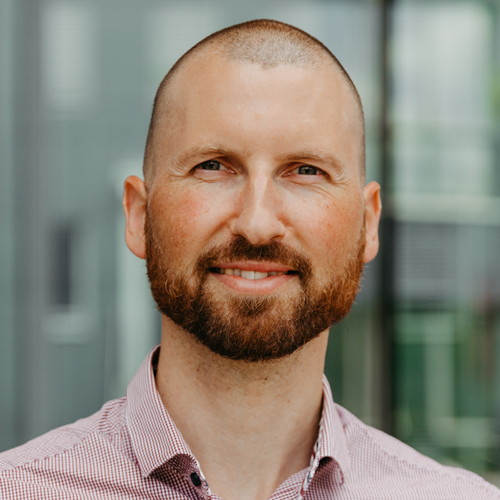Marco Taubert

Guest
Department of Human Origins
Max Planck Institute for Evolutionary Anthropology
Deutscher Platz 6
04103 Leipzig
e-mail:
marco_taubert@[>>> Please remove the text! <<<]eva.mpg.de
Current position
Research interests
Collaborative project with department
Other activities
Previous positions
Education and professional experience
Scientific output and merits
10 most relevant publications
Current position
Function: Professor for Training Science, with a focus on cognition and action
Institution: Otto-von-Guericke University (OVGU) Magdeburg
Laboratory: Faculty for Humanities (FHW), Institute III, Department Sport Science
City: Magdeburg
Country: Germany
Research interests
- Training-induced brain plasticity
- Cortical morphology and brain microstructure across the lifespan
- Links between motor learning and cognition
Collaborative project with department
- Developmental interactions between cranial capacity, cortical folding and brain microstructure
Other activities
- Vice-Dean for Research and Equal Opportunities, Faculty for Humanities, OVGU (since 2022)
- Head of Department Sport Science, Faculty for Humanities, OVGU (since 2021)
Previous positions
| 04-2016 - 09-2017 | Deputy Professorship Otto-von-Guericke University, Magdeburg, Germany |
| 02-2012 - 03-2016 | Post-Doc Max Planck Institute for Human Cognitive and Brain Sciences, Leipzig, Germany |
| 05-2008 - 01-2012 | PhD Max Planck Institute for Human Cognitive and Brain Sciences, Leipzig, Germany |
Education and professional experience
Degrees
| 2017 | Habilitation, University Leipzig, Germany |
| 2012 | PhD thesis in sport science, Universität Leipzig, Germany |
| 2008 | Diploma thesis in sport science, Martin-Luther-University Halle-Wittenberg |
Positions
| 2017- now | Professor for Training Ccience, with a focus on cognition and action, OVGU, Magdeburg |
Editorial activity
| since 2015 | Associate Editor for Movement Science and Sport Psychology |
| 2023 | Guest Associate Editor for Neuroplasticity and Development special issue in Frontiers in Molecular Neuroscience |
Scientific output and merits
Prize and awards:
| 2013 | Otto-Hahn Medal of the Max-Planck Society |
| 2010 | Travel Award, Organization for Human Brain Mapping |
| 2010 | Kurt Meinel-Prize, Faculty of Sport Science, Leipzig |
| 2007 | Scholarship from Studienstiftung des deutschen Volkes |
Research programs as PI:
| 2021 - 2024 | German Research Foundation, Collaborative Research Center 1436, C01 project grant (with Dr. Gabriel Ziegler), „Dynamic modelling of training-induced, response-optimised mobilisation of neural resources“ |
| 2019 - 2021 | Federal Ministry of the Interior ZMVI4-070506/19-21, „Development and evaluation of a cognitive-motor test battery to assess the quality of decision-making in youth handball“ |
| 2015 - 2016 | Federal Ministry of the Interior ZMVI4-070602/15-16, „Modulation of motor skill learning and underlying neural processes using interleaved cardiovascular exercise bouts“ |
| 2014 - 2016 | Federal Ministry of the Interior ZMVI1-070610/14-16, „Facilitation of motor skill learning with aerobic exercise during memory consolidation“ |
10 most relevant publications
1 | Aye, N., Lehmann, N., Kaufmann, J., Heinze, H. J., Düzel, E., Taubert, M., & Ziegler, G. (2022). Test-retest reliability of multi-parametric maps (MPM) of brain microstructure. NeuroImage, 256, 119249. |
3 | Lehmann, N., Villringer, A. & Taubert, M. (2020). Co-localized white matter plasticity and increased cerebral blood flow mediate the beneficial effect of cardiovascular exercise on long-term motor learning. The Journal of Neuroscience, 12, 2416-2429. |
2 | Lehmann, N., Villringer, A., & Taubert, M. (2020). Intrinsic connectivity changes mediate the beneficial effect of cardiovascular exercise on sustained visual attention. Cerebral Cortex Communications, 1, tgaa075. |
4 | Lehmann, N., Tolentino-Castro, J.W., Kaminski, E., Ragert, P., Villringer, A. & Taubert, M. (2019). Interindividual differences in gray and white matter properties are associated with early complex motor skill acquisition. Human Brain Mapping, 15, 4316-4330. |
5 | Sehm, B., Taubert, M., Conde, V., Weise, D., Classen, J., Dukart, J., Draganski, B., Villringer, A. & Ragert, P. (2014). Structural brain plasticity in Parkinson's disease induced by balance training. Neurobiology of Aging, 1, 232-239. |
6 | Taubert, M., Draganski, B., Anwander, A., Müller, K., Horstmann, A., Villringer, A. & Ragert, P. (2010). Dynamic properties of human brain structure: learning-related changes in cortical areas and associated fiber connections. The Journal of Neuroscience, 30, 11670-11677. |
7 | Taubert, M., Lohmann, G., Margulies, D.S., Villringer, A. & Ragert, P. (2011). Long-term effects of motor training on resting-state networks and its underlying brain structure. NeuroImage, 4, 1492-1498. |
8 | Taubert, M., Mehnert, J., Pleger, B. & Villringer (2016). Rapid and specific grey matter changes induced by balance training. NeuroImage, 133, 399-407. |
9 | Taubert, M., Villringer, A. & Lehmann, N. (2015). Endurance exercise as an “endogenous” neuro-enhancement strategy to facilitate motor learning. Frontiers in Human Neuroscience, 9, 692. |
10 | Taubert, M., Villringer, A. & Ragert, P. (2011). Learning-related gray and white matter changes in humans: an update. The Neuroscientist, 4, 320-325. |